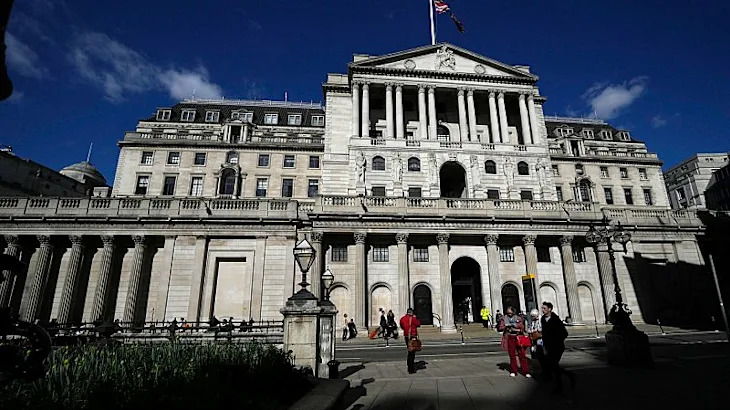
Markets week ahead: Will central banks offer investors a positive push?
Major global stock market indices posted weekly losses as an escalating global trade war sparked risk-off sentiment. While risk appetite may have recovered somewhat following Friday’s rebound, investors will focus on interest rate decisions from the Federal Reserve (Fed), the Bank of Japan (BOJ), the Bank of England (BOE), the Swiss National Bank (SNB), and the People’s Bank of China (PBOC), navigating the market trajectory this week.
The odds are now turning to the more dovish stance of these major central banks. Trump’s tariffs and his efforts to reduce the US deficit increased the risks of a global economic downturn. A more accommodative monetary policy could provide a further opportunity for stock markets to rebound. Typically, a “Fed put” could help Wall Street to recovery from a correction territory.
The Fed to keep the rate on hold
The Fed’s rate decision is set to be the most critical event for the financial markets. The reserve bank has lowered rates by 1 full percentage point to between 4.25% and 4.5% in 2024. In January, it paused the easing cycle due to a resilient labour market and sticky inflation. According to money market pricing, the Fed will likely keep the interest rate unchanged until June, which is sooner than the previously projected September. Trump’s tariffs deteriorated the economic outlook as recent data suggested that consumer sentiment plunged to a two-year low in the US amid inflation concerns. Furthermore, the US consumer price index (CPI) came in cooler than expected in February, also supporting the case for a sooner rate cut.
While the Fed may express concerns about the economic outlook, it will likely emphasise the need for further evidence for sustainable cooling consumer prices. Hence, the bank’s guidance on its rate path will be a key driver for market sentiment. A dovish stance, or so-called “Fed put” may trigger a sharp rebound in the US stock markets, as occurred during Trump’s first term. This could also weaken the US dollar further and push up other currencies, particularly the euro.
The BOE may keep rates steady
The BOE is expected to keep the interest rate unchanged at 4.5% this week as inflation surged in January. However, the swaps rates show that the bank may cut the interest rate in May and August this year, more than previously projected, when only one cut was anticipated due to growth concerns in the UK.
Additionally, the need to increase defence spending in Europe and Germany’s fiscal reform increased the odds for the European Central Bank to keep loosening monetary policy, likely promoting the BOE to follow suit.